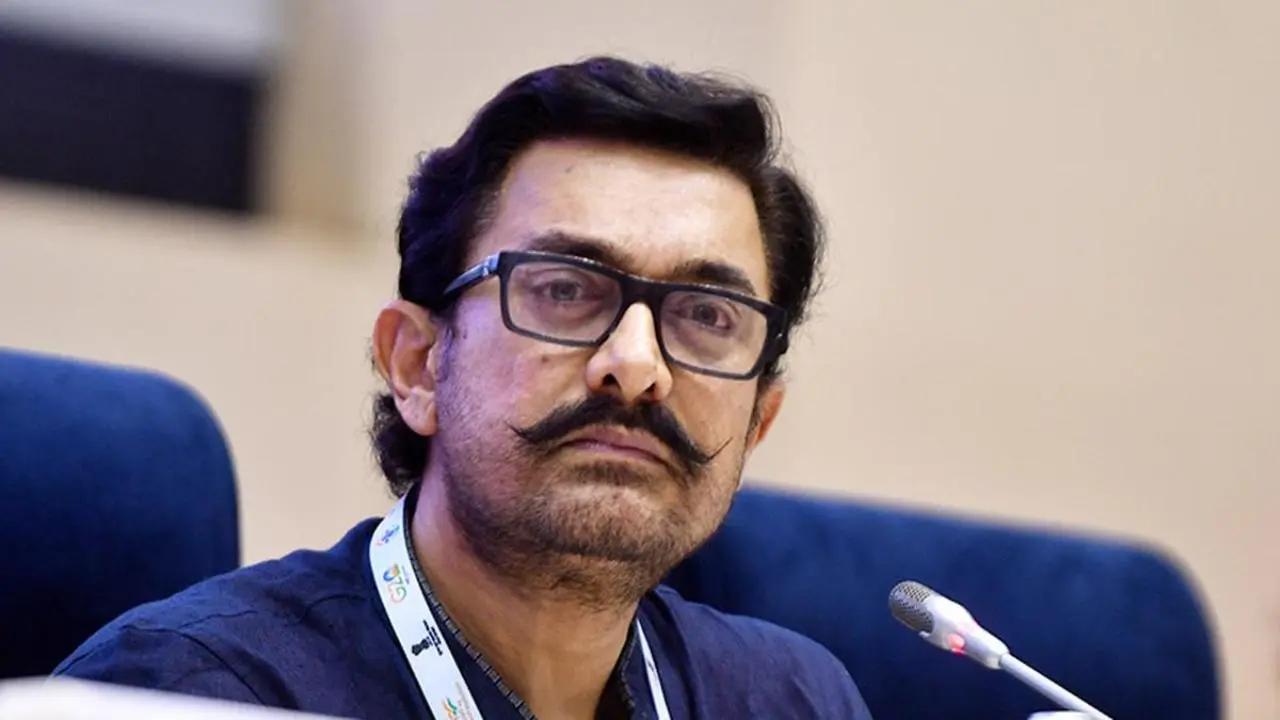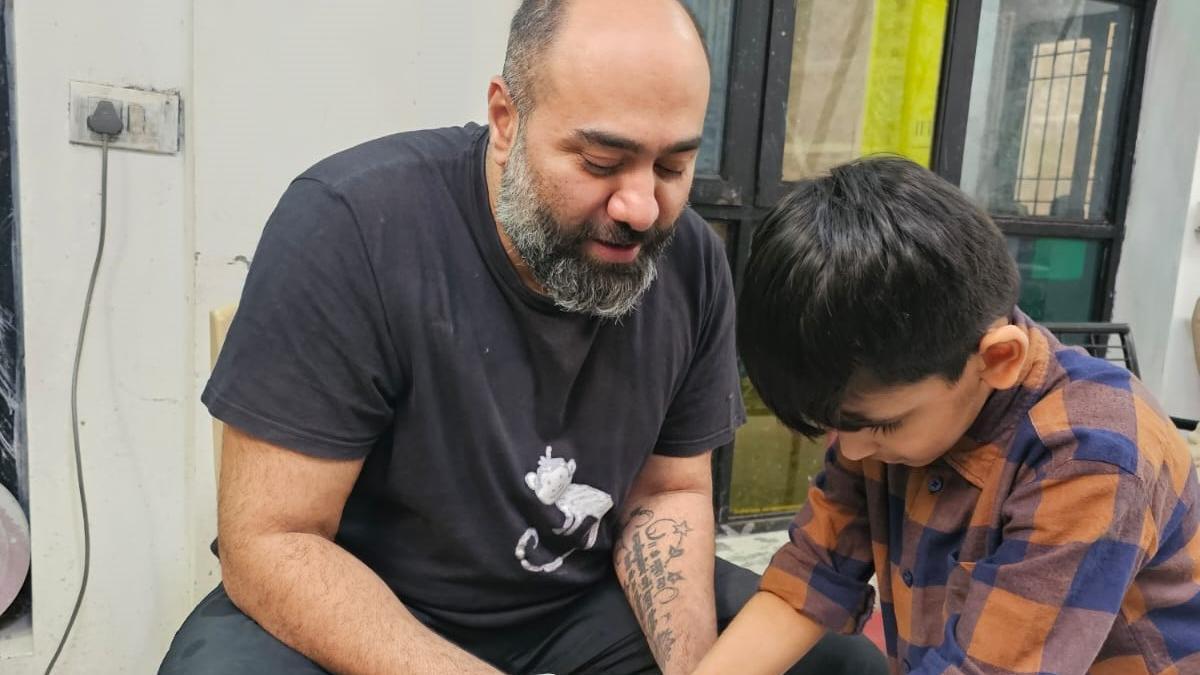
A year shy of turning 80, veteran actor Kabir Bedi gives us an in-depth account of the habits he adheres to to stay in shipshape
Actor Kabir Bedi celebrated his 79th birthday last month. Pics/Instagram
With the lack of sufficient critical voices weighing in on the subject of health and wellness online, several social media users prefer to take the content they receive with a pinch of salt. For Kabir Bedi, however, the web world has opened the doors to the opportunity to learn a great deal about matters relating to fitness. ADVERTISEMENT“Back in the day, we didn’t have social media, email, or instant phone calls. It was a hassle to communicate with anybody. So, things have changed dramatically in the last 30 years. With social media, you have people spelling out health tips, and I’ve learnt a lot from it. I’ve imbibed some of the things I’ve been told because the information is useful. Earlier, people would only focus on doing regular exercises. Today, exercises are more specific,” says Bedi, quick to add that while individuals love to consume content relating to fitness, they must remember that “you can’t get slim on knowledge.” “Acquire all the knowledge that you can, but, at the end of the day, you have to get up and exercise. A lot of people think that by knowing a lot about fitness, they’ll get fit. They won’t.”The actor lays emphasis on adhering to a healthy diet. He consumes a late breakfast, and an early dinner—a pattern that has helped him practice what he describes as “a form of intermittent fasting”. He is also critical of the consumption of fruit juices; (right) Kabir Bedi advocates for the use of turmeric. He combines it with pepper and honey or agave, olive oil, garlic, and ginger. He has been consuming it for 12 years.A year shy of turning 80, Bedi still appears to be in shipshape, and seemingly acquires knowledge from new sources while continuing to adhere to old norms that have kept him in good stead. He promotes the use of “gharelu nuskas”, a term that finds a special space on his Instagram page. “I believe in the curative powers of haldi. Get the best form of haldi that you can, preferably organic, and add black pepper to it, along with honey or agave as sweeteners. Create a paste using olive or coconut oil, and then add cinnamon, garlic, and ginger. I’ve been having [this] for the last 10 to 12 years, and I feel great. I have researched what is good for me and what I must do to fend off the effects of ageing, like the habit of smoking that I [once] had. I found curcumin to be the best antidote to most things. Age takes a toll, and you have to find ways to compensate for the depletion [in the body’s health]. So, I have vitamins, as well as magnesium. I can’t take my health and my state of well-being for granted today as I could when I was a young man.”
For the most part of the month, Bedi believes in adhering to a disciplined diet. “I emphasise that what you eat every day determines your nutrition, fitness, and health. Of course, you can binge once in a while, but it is what you eat on a regular basis—your breakfast, lunch, and dinner—how often you eat, and how much you eat, that defines you. If you create a system, it becomes easy to stick to your diet because you will not need to wait till the last minute to decide what to eat. If you wait until the last minute, the mind will think of the easiest option. I have a system. I have my breakfast late, and have a light tea along with some healthy snacks. I also have my dinner early, several hours before I sleep. That is good practice. Having a late breakfast is also good because it delays the intake of food after sleep. So, it becomes a form of intermittent fasting.” As passionate as his advocacy for healthy fats is, Bedi’s condemnation of the use of sugar is equally critical. “It is the villain,” he says, adding, “If you can minimise it, you will do yourself a huge favour. It’s impossible to avoid it because it’s all around you. But some wonderful substitutes are also there. The processed food industry is responsible for a lot of diseases.”
While Bedi heartily indulges in conversations around healthy eating habits, he only infrequently discusses his fitness routine. Expressing gratitude for his favourable genetic makeup, he says his athletic childhood contributed to his love for wellness. “I was an athlete during my years in school. I participated in long-distance races, and I was naturally pretty fit. I’ve never been a major workout buff, but, in college, I’d do some weight training and stamina-building [exercises]. But, honestly, I’d say I am a lazy fitness freak. I do the routines when I feel the need to do them. These days, I train once or twice a week. With age, you have to take care of your body even more and maintain agility, flexibility, and fitness. But, over the years, I’ve just done the bare minimum to keep myself looking good. I’ve been blessed.” However, he is quick to add that he doesn’t advocate for the lifestyle he could afford. “People should be in the habit of making time to do things to improve their health and keep their body toned.”
Ask him if conversations around fitness often find a place in his interactions with his granddaughter Alaya F, and he says, “The only thing I tell her is to stop having fruit juices in the morning. That creates fatty liver. You can eat fruits, but the minute you have them as juices, you are putting something into your body that spikes your insulin levels. So, you’re undoing the effort you put into improving your health.”
With the lack of sufficient critical voices weighing in on the subject of health and wellness online, several social media users prefer to take the content they receive with a pinch of salt. For Kabir Bedi, however, the web world has opened the doors to the opportunity to learn a great deal about matters relating to fitness.
ADVERTISEMENT
“Back in the day, we didn’t have social media, email, or instant phone calls. It was a hassle to communicate with anybody. So, things have changed dramatically in the last 30 years. With social media, you have people spelling out health tips, and I’ve learnt a lot from it. I’ve imbibed some of the things I’ve been told because the information is useful. Earlier, people would only focus on doing regular exercises. Today, exercises are more specific,” says Bedi, quick to add that while individuals love to consume content relating to fitness, they must remember that “you can’t get slim on knowledge.” “Acquire all the knowledge that you can, but, at the end of the day, you have to get up and exercise. A lot of people think that by knowing a lot about fitness, they’ll get fit. They won’t.”
The actor lays emphasis on adhering to a healthy diet. He consumes a late breakfast, and an early dinner—a pattern that has helped him practice what he describes as “a form of intermittent fasting”. He is also critical of the consumption of fruit juices; (right) Kabir Bedi advocates for the use of turmeric. He combines it with pepper and honey or agave, olive oil, garlic, and ginger. He has been consuming it for 12 years.
A year shy of turning 80, Bedi still appears to be in shipshape, and seemingly acquires knowledge from new sources while continuing to adhere to old norms that have kept him in good stead. He promotes the use of “gharelu nuskas”, a term that finds a special space on his Instagram page. “I believe in the curative powers of haldi. Get the best form of haldi that you can, preferably organic, and add black pepper to it, along with honey or agave as sweeteners. Create a paste using olive or coconut oil, and then add cinnamon, garlic, and ginger. I’ve been having [this] for the last 10 to 12 years, and I feel great. I have researched what is good for me and what I must do to fend off the effects of ageing, like the habit of smoking that I [once] had. I found curcumin to be the best antidote to most things. Age takes a toll, and you have to find ways to compensate for the depletion [in the body’s health]. So, I have vitamins, as well as magnesium. I can’t take my health and my state of well-being for granted today as I could when I was a young man.”
For the most part of the month, Bedi believes in adhering to a disciplined diet. “I emphasise that what you eat every day determines your nutrition, fitness, and health. Of course, you can binge once in a while, but it is what you eat on a regular basis—your breakfast, lunch, and dinner—how often you eat, and how much you eat, that defines you. If you create a system, it becomes easy to stick to your diet because you will not need to wait till the last minute to decide what to eat. If you wait until the last minute, the mind will think of the easiest option. I have a system. I have my breakfast late, and have a light tea along with some healthy snacks. I also have my dinner early, several hours before I sleep. That is good practice. Having a late breakfast is also good because it delays the intake of food after sleep. So, it becomes a form of intermittent fasting.” As passionate as his advocacy for healthy fats is, Bedi’s condemnation of the use of sugar is equally critical. “It is the villain,” he says, adding, “If you can minimise it, you will do yourself a huge favour. It’s impossible to avoid it because it’s all around you. But some wonderful substitutes are also there. The processed food industry is responsible for a lot of diseases.”
While Bedi heartily indulges in conversations around healthy eating habits, he only infrequently discusses his fitness routine. Expressing gratitude for his favourable genetic makeup, he says his athletic childhood contributed to his love for wellness. “I was an athlete during my years in school. I participated in long-distance races, and I was naturally pretty fit. I’ve never been a major workout buff, but, in college, I’d do some weight training and stamina-building [exercises]. But, honestly, I’d say I am a lazy fitness freak. I do the routines when I feel the need to do them. These days, I train once or twice a week. With age, you have to take care of your body even more and maintain agility, flexibility, and fitness. But, over the years, I’ve just done the bare minimum to keep myself looking good. I’ve been blessed.” However, he is quick to add that he doesn’t advocate for the lifestyle he could afford. “People should be in the habit of making time to do things to improve their health and keep their body toned.”
Ask him if conversations around fitness often find a place in his interactions with his granddaughter Alaya F, and he says, “The only thing I tell her is to stop having fruit juices in the morning. That creates fatty liver. You can eat fruits, but the minute you have them as juices, you are putting something into your body that spikes your insulin levels. So, you’re undoing the effort you put into improving your health.”










